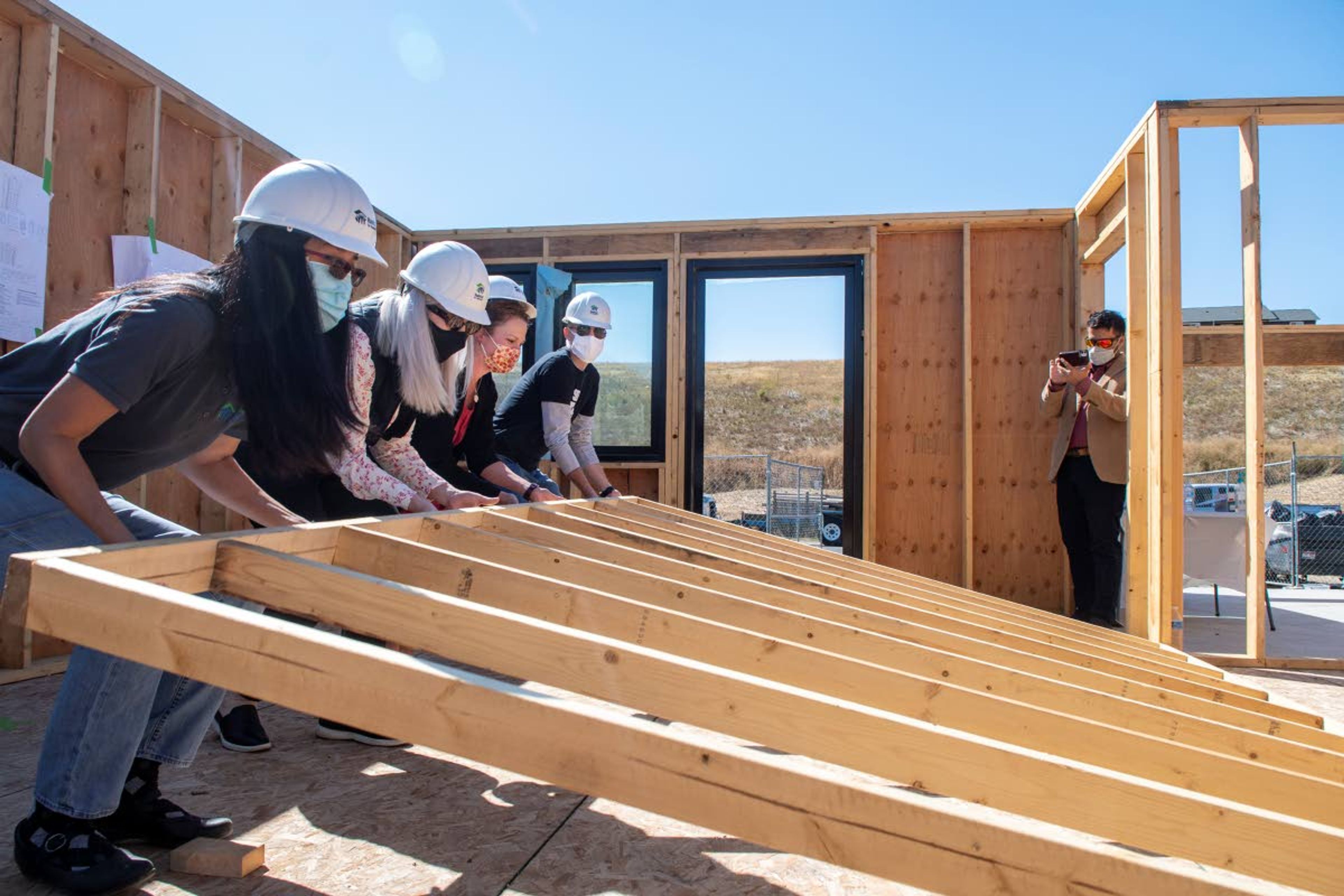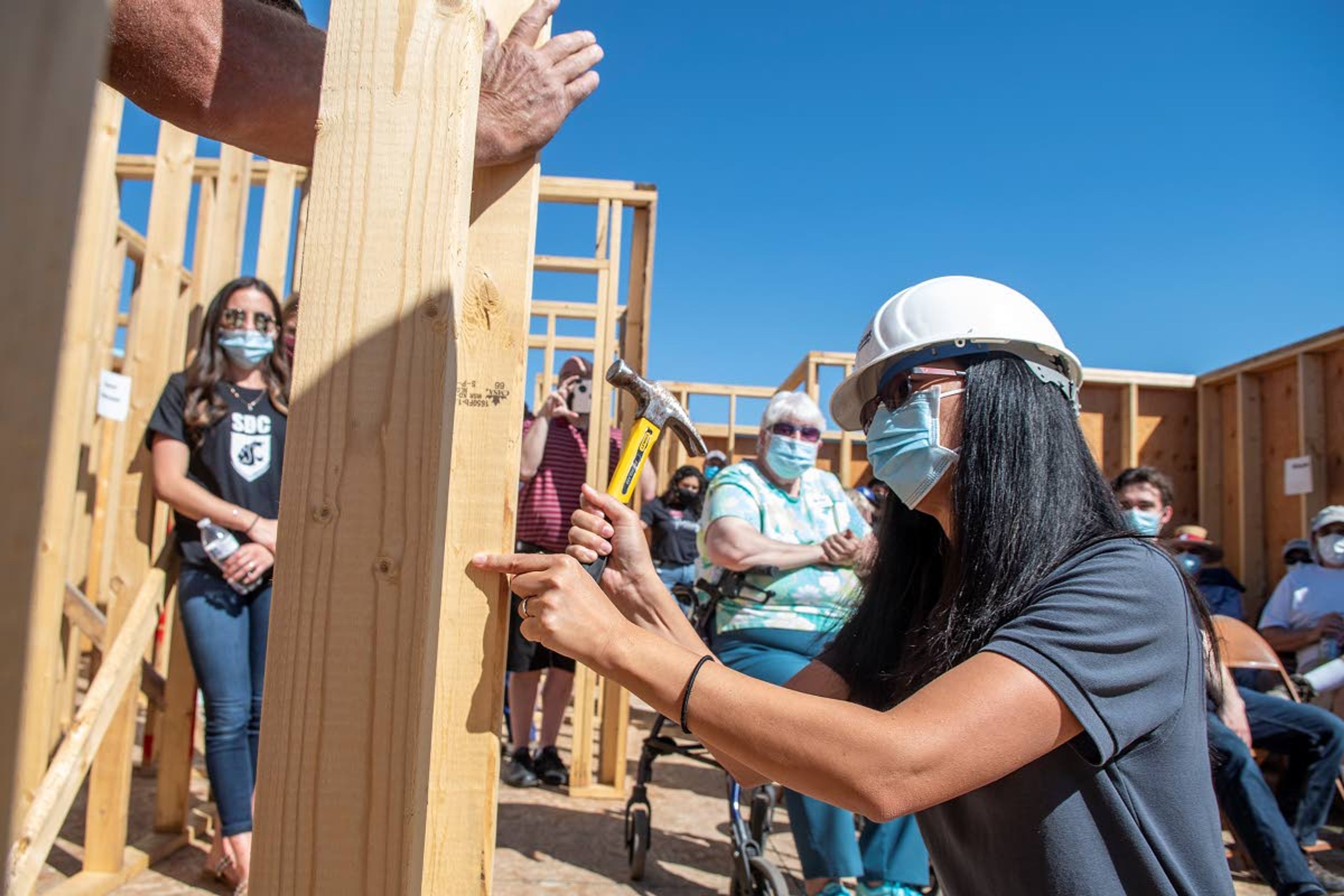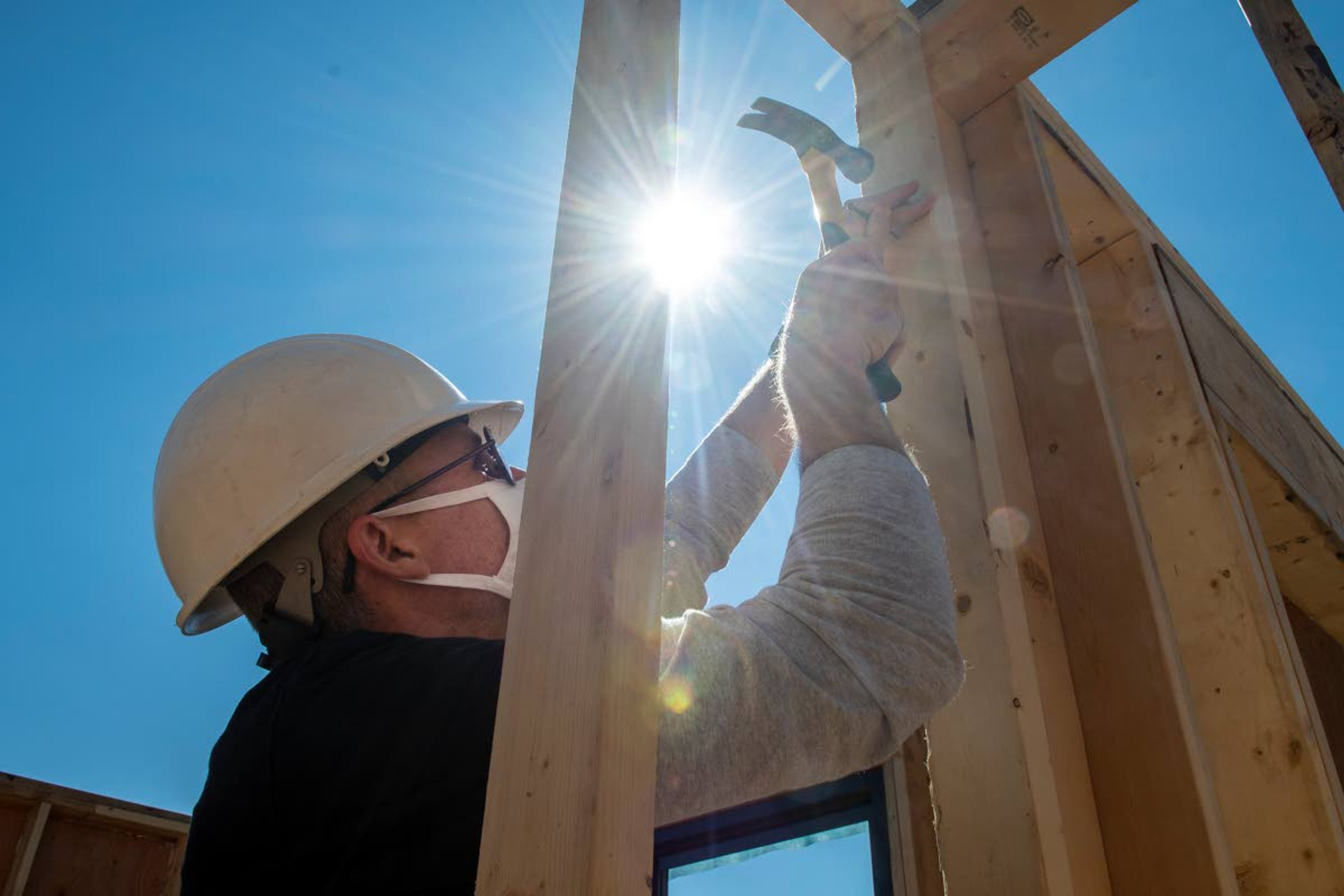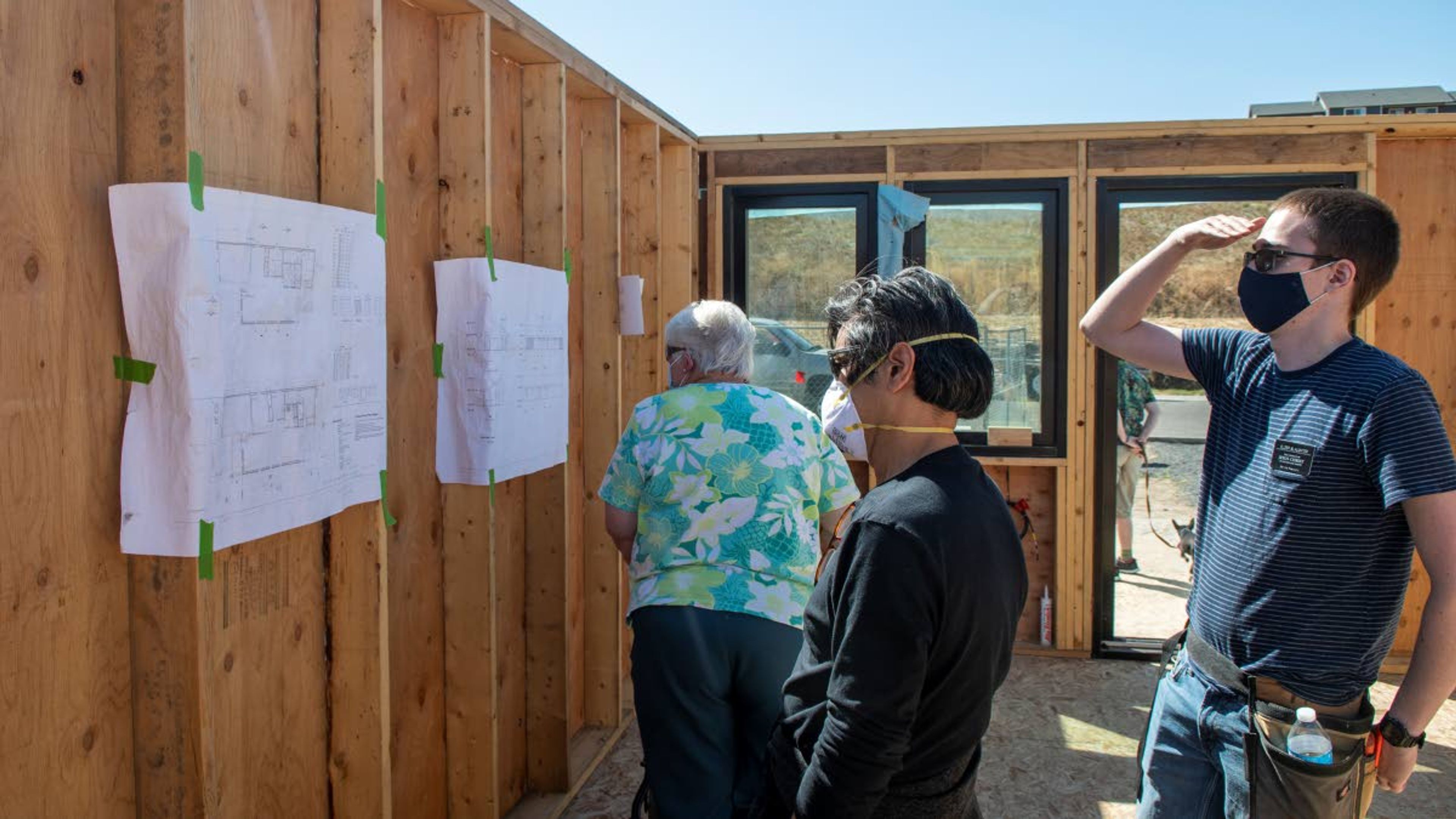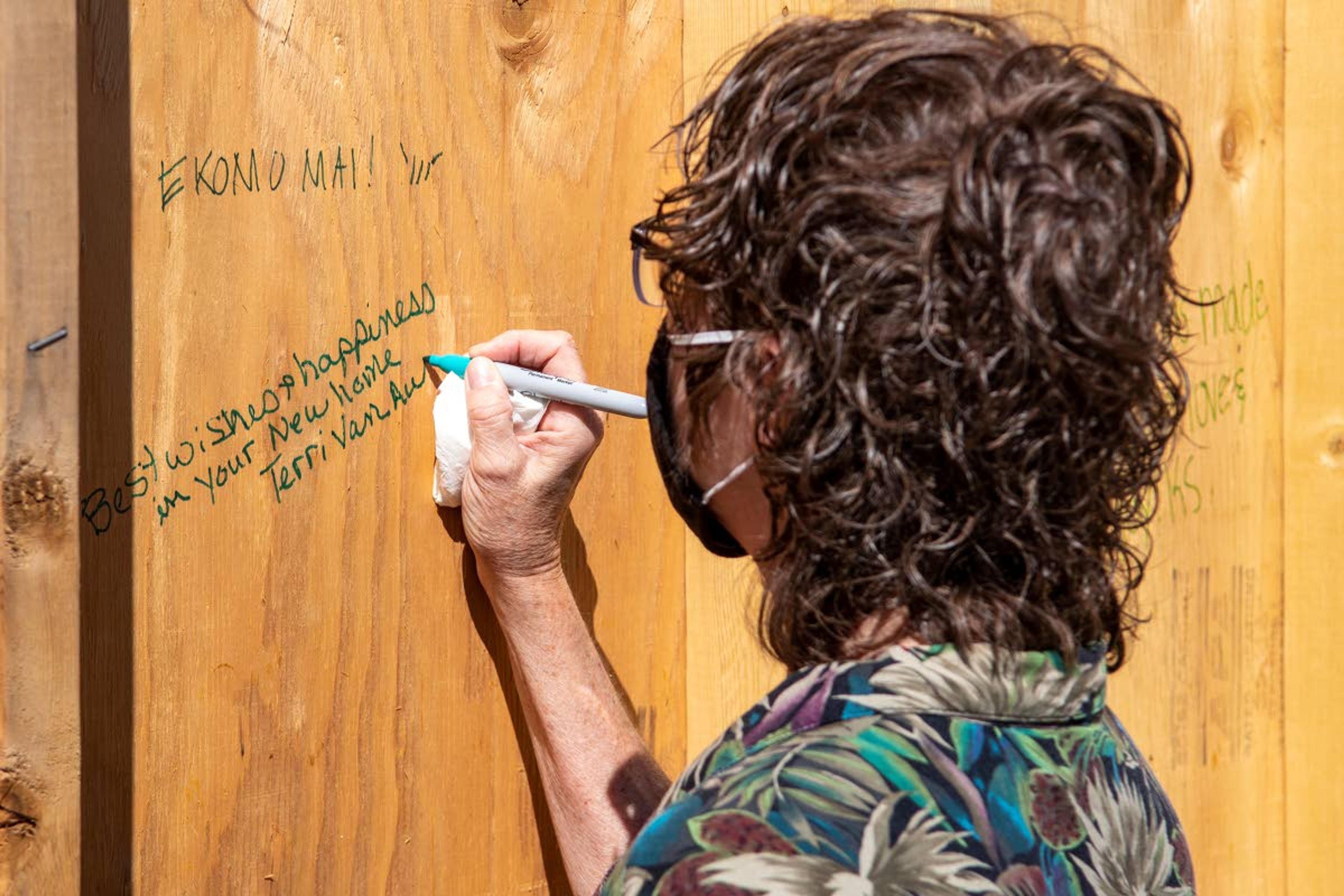Rising to the challenge
Palouse Habitat for Humanity partners with Washington State University to research and build cost-effective, energy efficient homes
UNIONTOWN — Palouse Habitat for Humanity and Washington State University celebrated a new research partnership to investigate cost-effective ways to build energy efficient homes with a “wall-raising” event at its residential build site in Uniontown on Thursday.
WSU donated a raft of building materials left over from one of its own capital projects in support of the project. Director of WSU’s School of Design and Construction Ryan Smith said the home where the wall-raising took place — dubbed HEAL house 1 — is the first of these homes.
Smith said a group of graduate students with WSU designed the HEAL (Housing Energy Affordability Lab) house working with the materials donated. With the design process complete, he said they will continue to monitor the homes energy usage over the year as a research project. Energy efficient features that set it apart from other Habitat for Humanity homes include more insulation, high-performing windows and more efficient heating, ventilation and air conditioning.
“In the State of Washington, we have a very aggressive energy code, and in order to accomplish that, builders are running up against limitations in affordability,” he said. “Habitat’s a bit different program ... using volunteer labor, so it’s the perfect testbed to ask the question ‘can you get this affordable and energy efficient.’”
Smith said if they can identify energy-saving strategies that can be applied to production houses and developments at a larger scale it will benefit the region and the state.
The partnership was orchestrated with the help of WSU’s Center for CIvic Engagement, Smith said. The Center works to connect service opportunities in the community to students and faculty at the university.
“Students are putting what they’re learning in the classroom to use in the community and meeting community needs and really living the land grant mission,” said Jessica Perone, faculty consultant for thec. “Students are able to gain not only a deeper sense of their course concepts but a sense of belonging to their new community, meeting professionals doing what they aspire to do and just gaining professional development by getting the hands-on experience.”
Cathy Blood, board chair for Palouse Habitat for Humanity, said the project is the culmination of years of talks and planning. She said a good portion of the materials used to construct HEAL House 1 were dated but some materials still had to be purchased. Still, she said, the donation was a big help — especially as construction and materials costs continue to rise. She said it’s also a good opportunity for the organization to strengthen its ties with community partners.
We are always looking for community partners, because I think, for us, we’re always trying to bridge ourselves into the community and hopefully have good experiences so that people are always willing to donate and help,” Blood said. “A Habitat home is built by donations of labor, donations of ours and sometimes donations of goods — so we want to always make sure that our Habitat homes are a part of the community.”
Jackson can be reached by email to sjackson@dnews.com.
